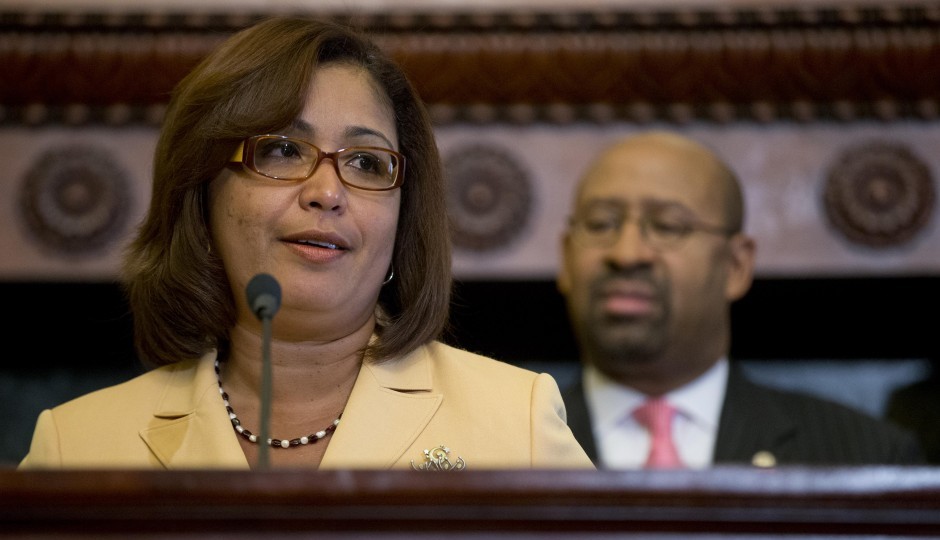Maria Quiñones-Sánchez Wants to Make Philly the “BCorp Capital of the World”

Maria Quiñones-Sánchez | Photo Credit: AP Photo/Matt Rourke
Sometimes, a business can do well by doing good.
That’s the idea behind so-called “BCorps” — businesses that pledge to achieve social goals while making profits. It’s an idea that’s gained popularity in the post-recession era — and attracted the eye of Philadelphia City Councilwoman Maria Quiñones-Sánchez. On Thursday, she introduced a pair of bills to attract and keep such businesses in the city.
“BCorps keep an eye on the triple bottom line — people, planet and profit — proving that you can do well and also do good,” Sánchez said in a press release announcing the initiatives. “By expanding our existing sustainability incentives, we can make Philadelphia the BCorp capital of the world.”
Her strategy is two-pronged:
• Council passed a Sustainable Business Tax Credit in 2009 for such businesses. They can apply for the credit, either by showing that they’re a certified BCorp, or by demonstrating that they provide social benefits — to the poor, the environment, the arts and so on. Currently, the tax credit maxes out at $4,000 a year. The new proposal would double that.
• She would expand the city’s “jump-start” tax provisions by offering certified businesses a three-year exemption from business income and receipts tax liabilities. (City law currently limits the exemption to two years.) To remain qualified, the businesses would have to have two full-time, non-family members working for them by the one-year anniversary, and to double that by the two-year anniversary.
Councilwoman Blondell Reynolds-Brown is co-sponsoring the legislation. “BCorps represent the best of what we hope becomes the norm and not the exception,” she said in Sánchez’s press release.
Well-known companies that are also BCorps include Patagonia, Warby Parker, Ben & Jerry’s and more. Local companies include software maker Azavea, Mugshots Coffeehouse and Solar States, a solar panel installation company. (B Lab, which certifies BCorps, is based in Wayne.)
The New Yorker in 2014 suggested such companies are highly attractive to millennial workers, who want to make money but don’t want to be limited by slavish devotion to the profit motive.
“It’s an important way for a company to attract and retain talented employees. Survey data show that workers — especially young ones — want to work for socially conscious companies, and will take less compensation in exchange for a greater sense of purpose,” James Surowiecki wrote for the magazine. “Such people often work for nonprofits, but B corps may soon become a more attractive option.”